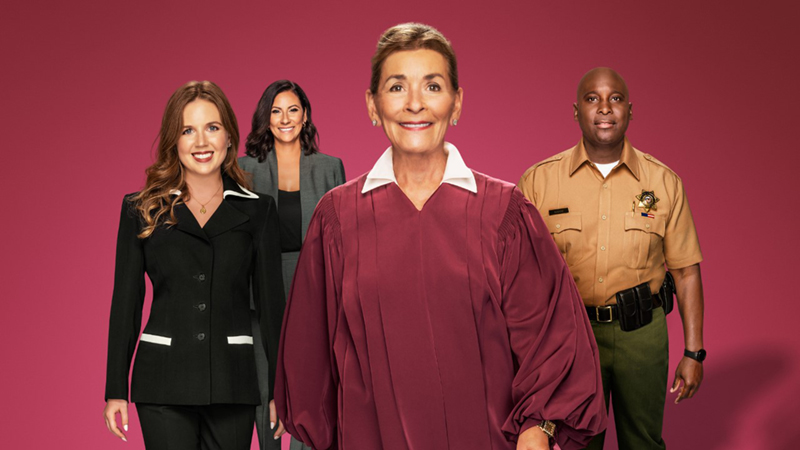Arts
Personality
Television
From ‘Judge Judy’ to ‘Judy Justice’

Judy Sheindlin rode her reputation as a no-nonsense New York City prosecutor and judge to the top of the Nielsen ratings. For the last 25 years, she starred in Judge Judy, the courtroom series that featured the jurist arbitrating real-life cases in what was often the highest-rated program on daytime television. She was awarded three Daytime Emmys and a star on the Hollywood Walk of Fame and became among the highest-paid hosts on daytime television, earning $47 million per year.
After tensions with CBS, which syndicated her show, she signed with IMDb TV, moving her courtroom to Amazon’s free streaming service. Judy Justice debuted in November and features the same type of small-claims cases that made Judge Judy so popular, from landlord-tenant conflicts to sales disputes.
Sheindlin, 79, was born Judith Susan Blum in Brooklyn, N.Y., and received her graduate degree from New York Law School. Before taking her brassy personality to television, she was a prosecutor in family court and was later appointed by legendary Mayor Ed Koch as a judge in family court.
I started our interview by reminding Sheindlin about a comment she’d made to the Hollywood Reporter last May, that she was not ready to retire or to learn mah jongg. I told her if she changed her mind, my wife had a mah jongg opening on Thursdays. She laughed and we were off to the races. This interview has been edited for brevity and clarity.
What was your Jewish life like growing up in Brooklyn?
My family was what I call community observant, which means that we went to temple on the High Holy Days. We did not keep a traditional kosher home, but our extended family got together on holidays. My grandmother cooked. We all lived at 226 Parkside Avenue, on two different sides of the same building.
My grandfather would spend Yom Kippur in temple. Our tradition was that my family would go to temple at the end of the day and walk home with him. My grandparents lived on the seventh floor, or maybe the ninth. The building had an elevator but my grandfather, who was in his 60s—the equivalent of being in your 90s today—would walk the stairs.
When I asked him why, he said it was to atone for his sins. That translated to me as, “If I don’t do anything bad all year, I could always take the elevator.”
How did your upbringing help form the person you are today?
My father and mother were very moral people, and the message I got from them was that you try to do the right thing all the time. That doesn’t mean you’ll have a perfect outcome all the time. But you can be pretty damn sure that if you do the wrong thing—take someone’s bike, scratch someone’s car—and not take responsibility, it may not come back at you that day, but eventually karma has a full circle.
I don’t think that’s particularly Jewish.
I think this country is made of moral people who wouldn’t consider taking someone else’s property.
How do you account for Judge Judy’s tremendous popularity?
I’m a good storyteller. Also, the viewing audience has to love you or watch you because they hate what you do. I prefer that you like me, but as long as you watch, I don’t care. I think the vast majority of people in this country believe that rules are being blurred without consequences. For an hour a day, you see the rule of order, something people find a little comforting, a little nostalgic. Sometimes I’m not quite PC, but I’m always truthful. And if you don’t like it, change the channel.
One of my favorites cases on Judge Judy was when you ruled on the ownership of a dog. Your process was almost Solomonic. How did you come to your decision?
One man said his dog had been stolen from his yard. The woman said she’d bought the dog. As a dog owner, I know that when I come home after being away—although she loves the people who take care of her—my dog runs to me and doesn’t leave my side. So I had the clerk bring the dog into the courtroom, and the dog ran to the man. Clearly the dog favored him despite the fact that he’d been living with the woman for six months. I was just using common sense.
Curt Schleier, a freelance writer, teaches business writing to corporate executives.










 Facebook
Facebook Instagram
Instagram Twitter
Twitter
Leave a Reply